Top 25 SFX Books
None
The greatest SF and fantasy novels ever, as voted for by you!
So, what are the greatest SF and fantasy novels ever, according to SFX readers? Would the Top 25 include classics like The Invisible Man , War Of The Worlds and 20,000 Leagues Under The Sea ? Or would there be a bias towards modern fantasy series? Would Terry Pratchett’s chances be scuppered because his fans have so many books from which to choose? We needed to know, so we asked you lot to vote for your top three novels. We had over 1,000 responses and here are the results. Enjoy:
.
25 THE LION, THE WITCH AND THE WARDROBE
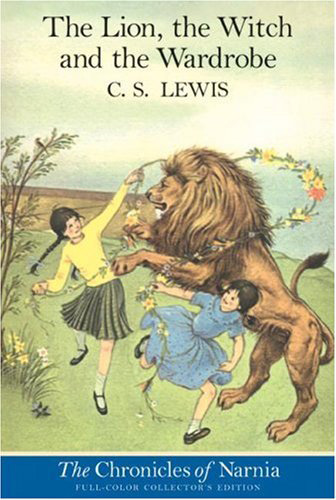
Author: CS Lewis
Published: 1950
The first of CS Lewis’s Narnia novels to be published (though the second in Narnia internal chronology, after The Magician’s Nephew ), The Lion, The Witch And The Wardrobe is the tale of four children – Peter, Susan, Edmund and Lucy Pevensie – who find a fantasy land inside a wardrobe. It’s a thinly disguised Christian allegory, but none of that really mattered when we were kids. We just loved Aslan, the talking beavers and Mr Tumnus the faun, and loved to hate Jadis, the evil witch Queen who is keeping Narnia in an eternal icy winter.
24 THE STARS MY DESTINATION
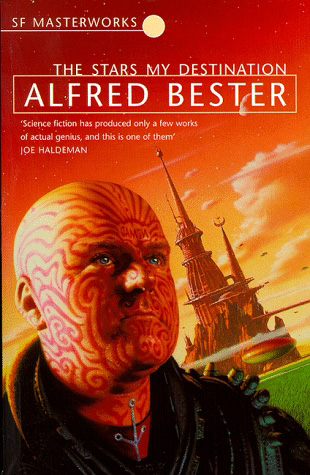
Author: Alfred Bester
Published: 1956
Starring one of SF’s greatest anti-heroes, Gully Foyle, The Stars My Destination (or Tiger! Tiger! as it was originally called in the UK) is a wildly inventive revenge melodrama, inspired by Alexandre Dumas’s classic The Count of Monte Cristo . Driven by obsession, Foyle rescues himself – after a fashion – and returns, strangely dis?gured, to the rich decadence of 25th-century Earth. Society has been transformed by the widespread power to teleport or “jaunte”, and Bester gleefully explores the criminal possibilities.
23 WYRD SISTERS
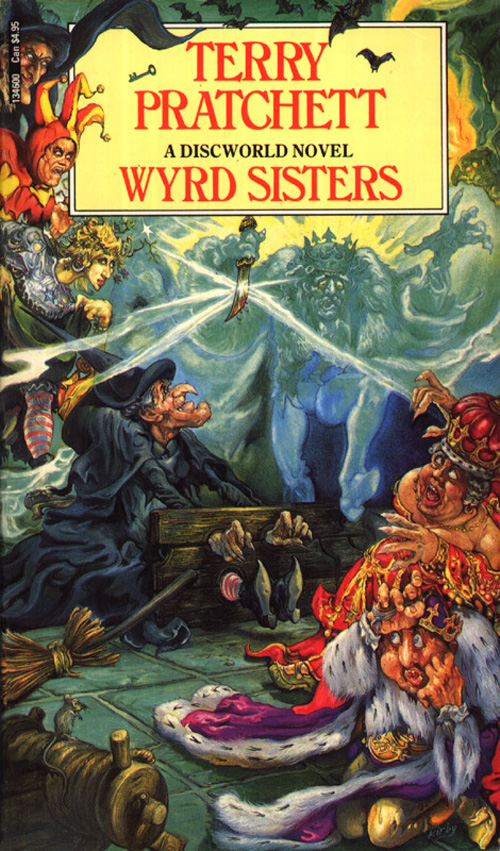
Author: Terry Pratchett
Published: 1988
Get sneak previews, exclusive competitions and details of special events each month!
Just one of a number of Terry Pratchett works in this countdown (we won’t reveal quite how many because that would ruin the fun, but he is the most represented author in this Top 25), Wyrd Sisters was the sixth Discworld novel. This one’s about three witches – Granny Weatherwax (who’d previously appeared in Equal Rites ), Nanny Ogg and Magrat Garlick – which might clue you to the fact that the book has a fair few Shakespearean gags. For starters, it opens with, “When shall we three meet again?” “Well, I can do next Tuesday”. One of themes is about the power of words to shape reality. Hmmm, could it have been an influence on Doctor Who ’s “The Shakespeare Code?”
22 WATCHMEN
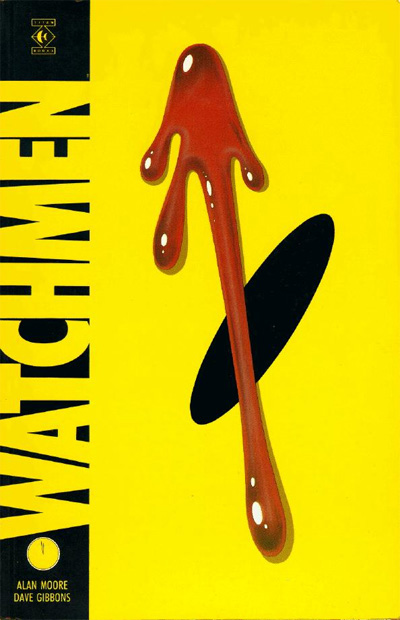
Author: Alan Moore/Dave Gibbons (art)
Published: 1986
A number of graphic novels received votes in this poll, but only Watchmen amassed enough to make it into the Top 25, which, by default, means it must be the greatest graphic novel ever (hey, you can prove anything with statistics). It’s a complex, multi-layered tale, unlike anything ever seen in the superhero genre when it was first published, and imitated to Hell since. These superheroes were washed-up has-beens, psychos, freaks, outsiders and malcontents, in a dirty, grimy world that has banned the very existence of “masks”. Powered by Dave Gibbons’s muscular art, Watchmen is the Citizen Kane of comic-strip superhero storytelling, a dazzling example of what the genre achieves when it stretches itself and manages to both fight against and yet embrace the clichés of the genre at the same time.
21 IT
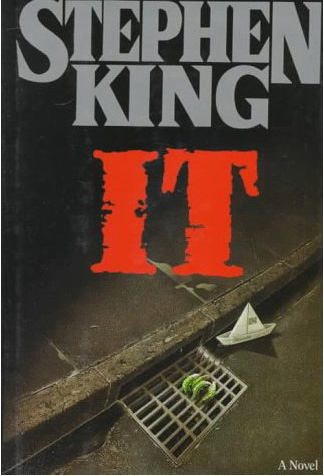
Author: Stephen King
Published: 1986
The novel in which the two sides to Stephen King – master of horror and master of nostalgia for growing up in ’50s and ’60s America – mesh together perfectly to produce a novel that tugs at the heartstrings as much as it scares the crap out of you. A bunch of kids growing up in Maine without a Glee club to indulge their outsider tendencies, instead find a common cause battling a killer clown. But the effects of that battle leave scars that remain until their adulthood… when Pennywise the Clown makes a comeback. It’s massive, but the very definition of a page turner. And even if there’s some nonsense intergalactic turtles and ancient giant spiders that all get a bit weird, it’s the small, personal scenes of children facing their fears that remain in the memory.
20 LEGEND
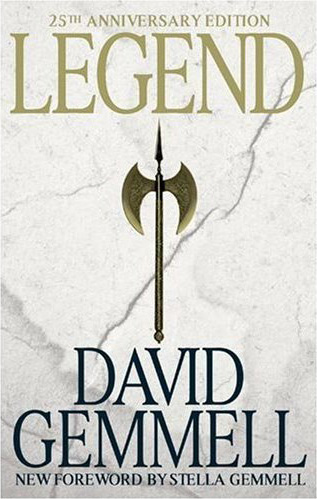
Author: David Gemmell
Published: 1984
Some people just don’t get Gemmell. Their loss. To dismiss him as just another fantasy writer talking about mightily muscled heroes swinging their axes at each other to miss the raw, unrefined, uncompromising beauty in his writing. In a period when fantasy writing was developing into ever more complex tales where painstakingly crafted worlds, meticulously worked-out rules of magic and vast, sprawling faux-histories seemed more important than simple things like plots, Gemmell pared everything right back to basics – good characters, good stories. His books always felt like authentic legends, stories of heroes handed down through generations by fireside storytellers. And yet his heroes were never simple sword-wielding action men. You understood what drove them; you understood their values, their codes of honour; you lived with them through their pain and their joy. Sure you always knew they would win, but rarely was that winning easy. And you lived through the struggle when it came to Gemmell’s heroes. And none of them was more heroic than Druss The Legend.
19 NIGHT WATCH
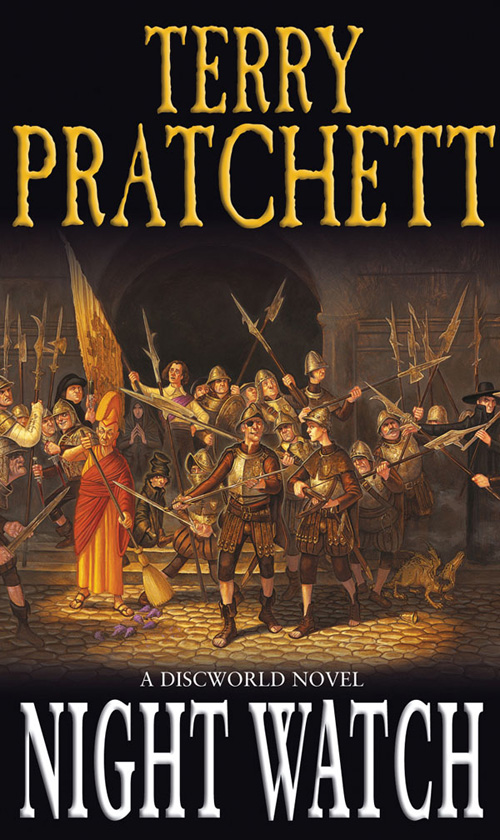
Author: Terry Pratchett
Published: 2002
The 29th Discworld novel (blimey, and he’s still going!), Night Watch is a tale of civil unrest, which sees Watch Commander Vimes sent back in time to a period of uprising in Ankh-Morpork. There he encounters his younger self and plays the part of his own mentor while tracking down a psychopath from the future. Arguably one of Pratchett’s best written novels, which has a lot to say about the role of law enforcement and the military in times of urban strife.
18 THE STAND
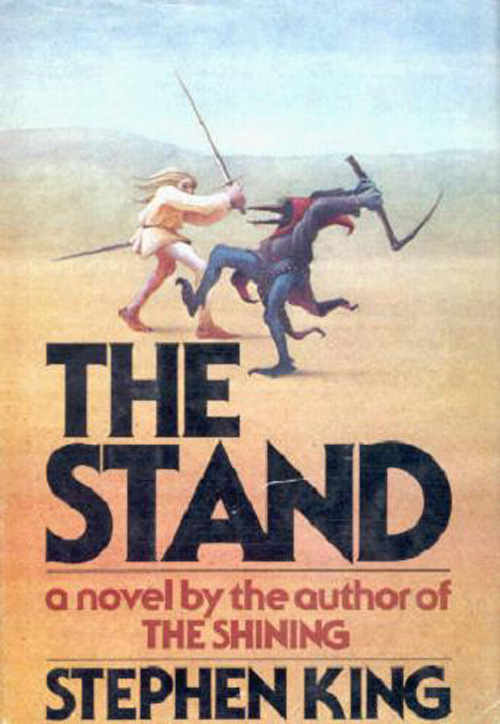
Author: Stephen King
Published: 1978
The Stand is a vast, sprawling post-apocalyptic horror which begins with humanity laid waste by a biological weapon, before detailing how two groups of survivors align themselves into factions, which basically represent good versus evil. And it all ends up in an almighty “Stand”-off. Of course, it’s all a lot more complicated than that…
17 HYPERION
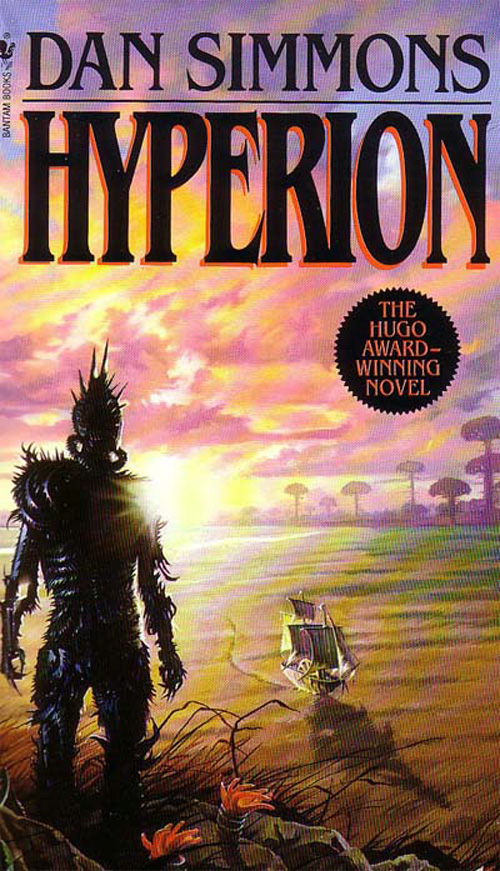
Author: Dan Simmons
Published: 1989
Epic, poetic space opera: structured like The Canterbury Tale s, the novel Hyperion – first in a series of four connected books – is a selection of stories told by Hegemony citizens as they journey across a hostile planet. Their goal is the Time Tombs, ancient archaeological sites moving backwards through time, which are home to the mysterious Shrike, the focus of a new religion.
16 MAGICIAN
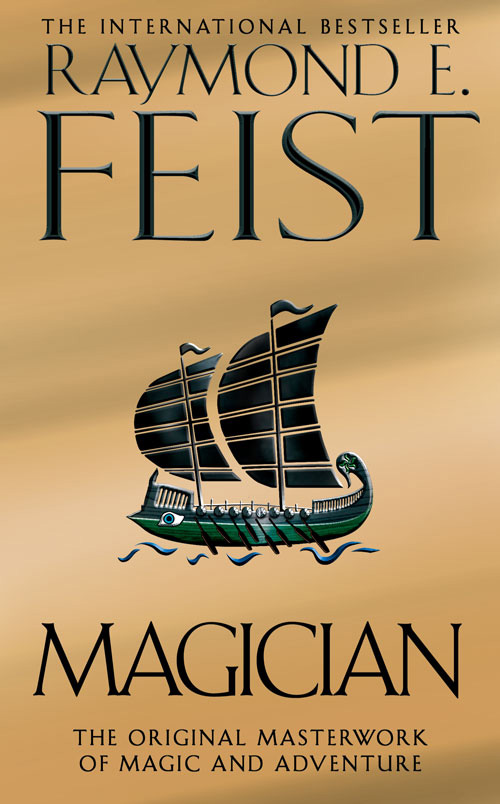
Author: Raymond E Feist
Published: 1982
The first in the Riftwar series of books follows youngster Pug as he’s snatched from Midkemia and taken to the Tsurani planet, where his natural magical abilities are honed. The book spawned multiple sequels set in the same worlds (it’s hard to believe Pug hasn’t died of old age by now) but this original novel is still the finest.
15 GOOD OMENS
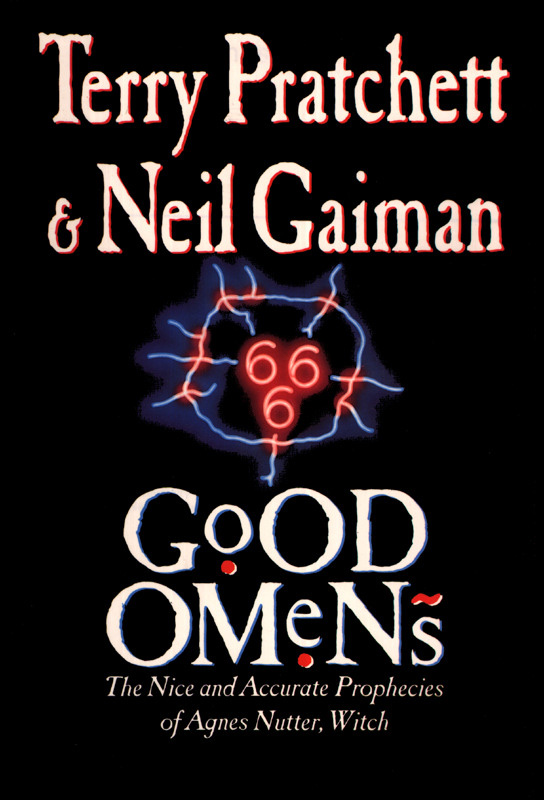
Author: Terry Pratchett, Neil Gaiman
Published: 1990
Today if Neil Gaiman and Terry Pratchett worked on a book together there would be a media blitz. But back when Good Omens was written they were still their fans’ best kept secrets, and the result probably benefited from the fact there was no great weight of expectation. They were just two young authors bursting with ideas who liked the idea of working together. And the result is a unique, never-to-be-recaptured work of comic genius. An angel and a demon who’ve become rather comfy with their lives on Earth join forces when the birth of the son of Satan heralds The End Of Times, and their easy lives.
14 I AM LEGEND
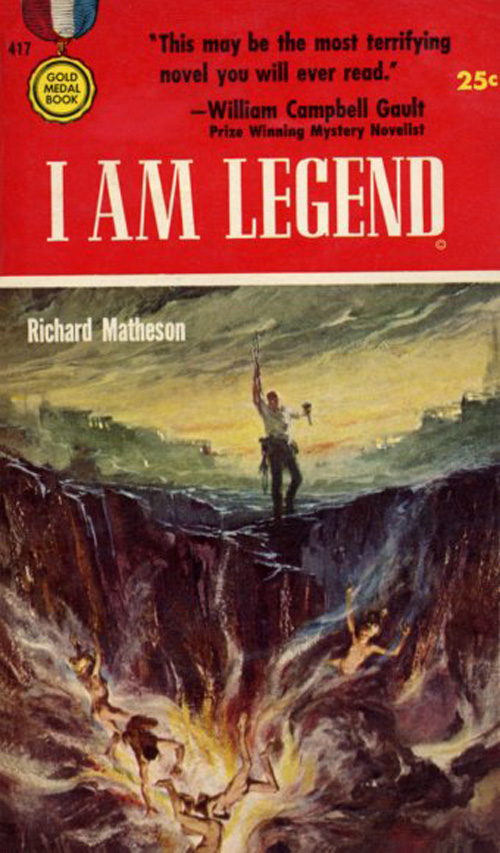
Author: Richard Metheson
Published: 1954
Is it a vampire novel? Is it a zombie novel? Is it a post-apocalyptic novel? Or is it all of the above? Richard Matheson’s atmospheric tale of the last man on Earth living in a world where the rest of the population have turned into vampire-like creatures that besiege him every night is full of evocative imagery and moments of grim horror that are hard to forget.
13 GUARDS! GUARDS!
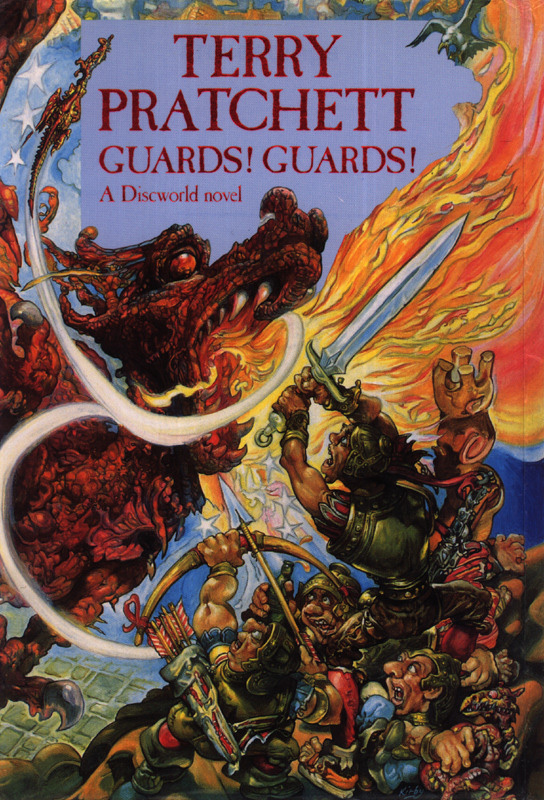
Author: Terry Pratchett
Published: 1989
The eighth Discworld novel, and the first to introduce the City Watch, members of which would go on to become some of Terry Pratchett’s most popular characters, especially Vimes whose journey from disillusioned drunk to respected city officer has featured in many subsequent books.
Film/TV versions: Sky is due to broadcast a TV version in May
12 THE DAY OF THE TRIFFIDS
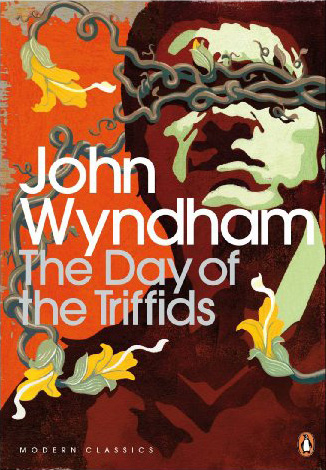
Author: The Day Of The Triffids
Published: 1951
Everybody knows what a Triffid is, even if they’ve never read the book. Like HG Wells and Jules Verne Wyndham introduced SF concepts that have staked their claim in the zeitgeist (and indeed three of other novels – The Kraken Wakes , The Chrysalids and The Midwich Cuckoos – only just missed out on making this Top 25), and the Triffids are his most enduring creation. It’s the gag you use every time to see a sign saying, “Heavy plant crossing.” But contrary to popular belief (ie, people who haven’t read the book) Triffids isn’t an alien invasion tale. Man created the Triffids. They only get their day when the whole world is blinded by a strange meteor shower. It’s a cracking adventure story but has much to say about man’s misplaced hubris and the inevitability of nature winning out in any battle. Even if you do think you’re safe on the Isle of Wight.
11 ENDER’S GAME
Author: Orson Scott Card
Published: 1985
One of the earliest novels to deal with VR, Ender’s Game was the first in a series of books set in a future where Earth is in a war against an insect race, the Formics, more colloquially known as Buggers (the best gag not used in Starship Troopers or District 9 ). In preparation for another attack, Earth starts training up promising children – including Ender Wiggin – in the Battle School. Training includes sessions inside a VR battles simulator, where Ender proves a tactical genius. But the training takes it toll on him, as Ender begins to lose his grasp on reality.
10 A GAME OF THRONES
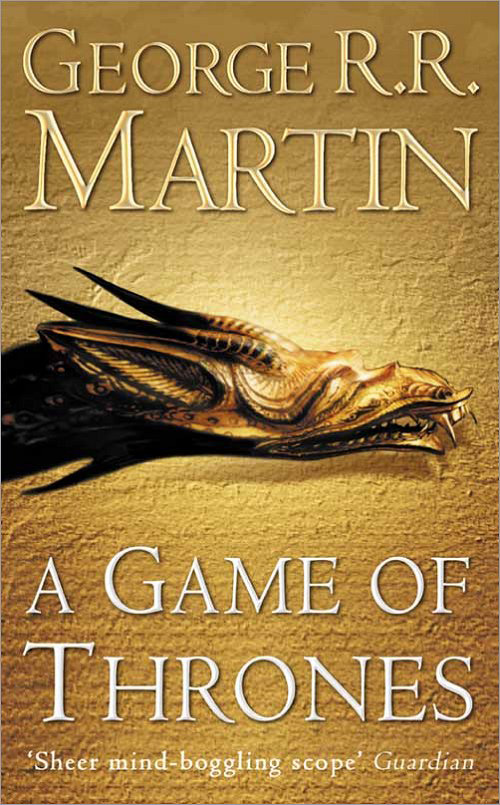
Author: George RR Martin
Published: 1996
Chess tournament director, comic collector and role-play gamer George RR Martin has been propelled into fantasy’s A-list thanks to his ambitious A Song of Ice and Fire series. A Song of Ice and Fire – of which four volumes have so far been published – is planned as a seven-volume series, though Martin has also written (and plans to write more of) a number of connected novellas set in the same universe. Heavily influenced by the War of the Roses it’s a vast, sprawling tale of civil war set in the Seven Kingdoms of Westeros, with an absolutely massive cast of characters who tend to get killed off with alarming regularity. Although clearly in the Lord of the Rings tradition – Martin certainly seems intent on creating a “new mythology” and each of the books comes with a lengthy appendices giving historical background and character details – A Song of Ice and Fire is a far more gritty affair. There’s less emphasis on magical races (though there are a few) and more attention to creating a surrogate alternate reality which feels authentic and hard-edged.
9 HIS DARK MATERIALS
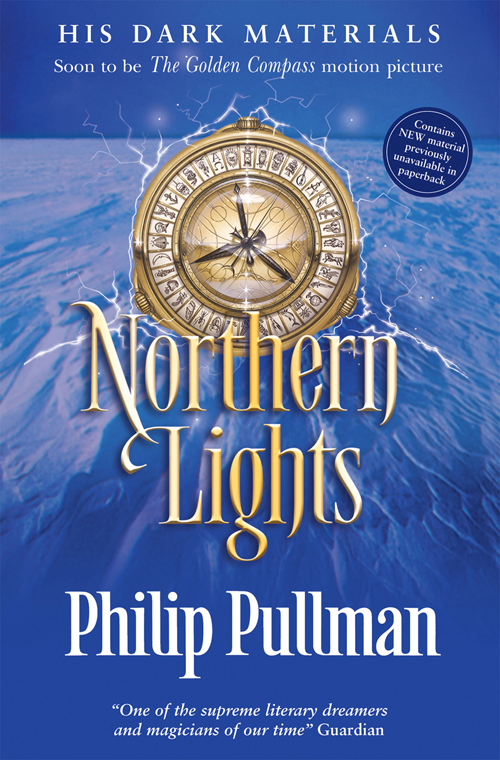
Author: Philip Pullman
Published: 1995-2000
During the media storm surrounding the Potter phenomenon, His Dark Materials gained a reputation as the thinking teen’s antidote to JK Rowling, which was a bit unfair on both authors. But while Pullman’s trilogy doubtless gained sales from that notoriety, it’s a shame that His Dark Materials came out at the same time as Potter, because in any other period it would have stood out on its own merits as an absolute classic of children’s literature. Part Narnia (or indeed anti-Narnia in its stand on religion) part Paradise Lost , it’s an audacious, deep, complex trilogy full of a wonder written with style and panache. Not to mention subversive ideas about the role of organised religion. It’s also a cracking great yarn of alternate realities, witches, Hell and balloon chases. Yes, we said balloon chases.
8 THE HOBBIT
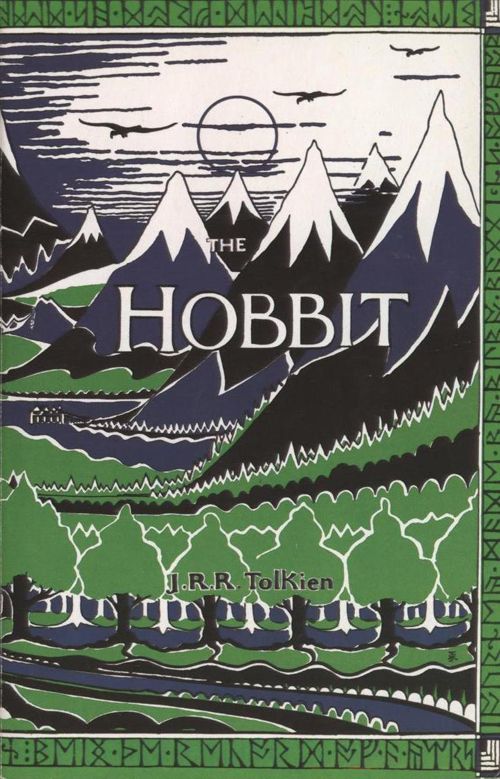
Author: JRR Tolkien
Published: 1937
Who could have guessed back in 1937 when this “children’s” book came out quite what it would lead to? Few could have realised that this deceivingly simple tale of a Hobbit and his dwarf chums going on a quest was a gateway drug to a fantasy trilogy that would hook millions of readers. But even if The Lord Of The Rings had never been published, this beguiling book would have remained a classic. It’s a wonderfully rich children’s book, full of magic, humour, lyrical prose and memorable characters. And tantalising hints of a world and mythology that exists beyond its bindings.
7 AMERICAN GODS
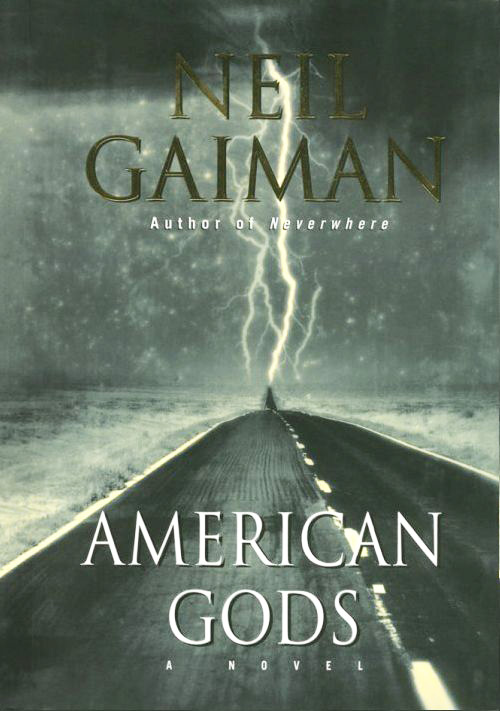
Author: Neil Gaiman
Published: 2001
Master fantasist Neil Gaiman gives us a Hugo-winning occult spin on the classic road novel, mapping an America where ancient gods hide in plain sight. And there are zombie wives and coin tricks and Cornish pasties to savour along the strange, dark highways…
6 NINETEEN EIGHTY-FOUR
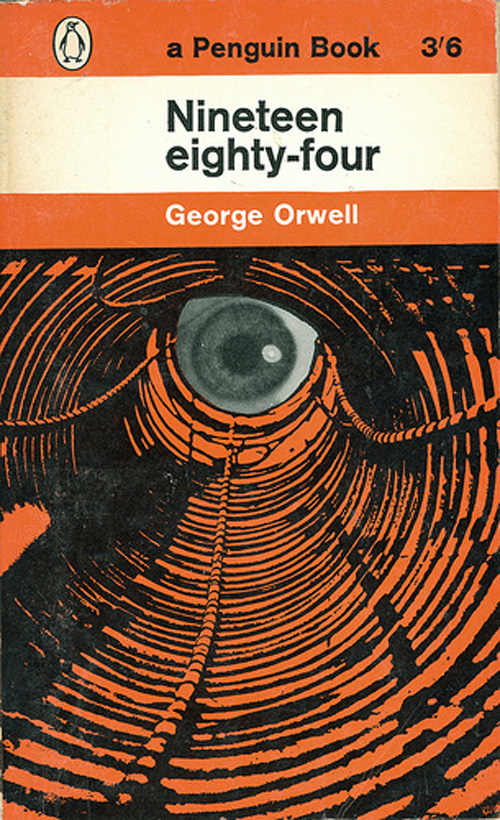
Author: Nineteen Eighty-Four
Published: 1949
1984 isn’t in the past. Thanks to George Orwell, it will always be in the future. His bleak, dystopian novel is not just a warning against authoritarian regimes being allowed to insidiously control their populace; in this age of information it also seems a stark warning against the power of the media to mould opinions. Euphemistic concepts like Newspeak and Ministry Of Truth seem even more chillingly possible now than they would have back in 1948. But the book’s power is not just in its political message; the story of Winston Smith‘s struggle against the system is gripping, and elements like Room 101 and Big Brother make the book unforgettable.
5 HARRY POTTER AND THE PRISONER OF AZKABAN
Author: JK Rowling
Published: 1999
All of the Harry Potter books received a fair number of votes, but by far the most popular was the third book, with its time travelling shenanigans and werewolves. The book probably marks the perfect balance between the rollicking children’s adventure stories of the earlier books and the growing angst and complex plots of the later books. It’s also the last Potter book you didn’t need a fork lift truck to get home from the book shop.
4 THE WAR OF THE WORLDS
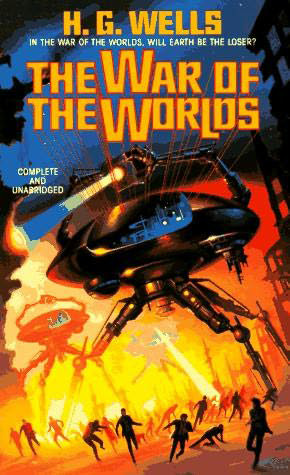
Author: HG Wells
Published: 1898
The oldest book in this top 25, and it fully deserves its top five position. Not just because of its historical importance – the first alien invasion novel, you realise – but because it is full of the most amazingly evocative imagery: the Martian ship landing on Horsell Common; the Martian slowly emerging; the three-legged war machines; the attack on the Thunder Child (a ship full of escaping humans); the red weed. This was blockbuster science fiction in literary form. And all written in such splendidly Victorian prose.
3 DUNE
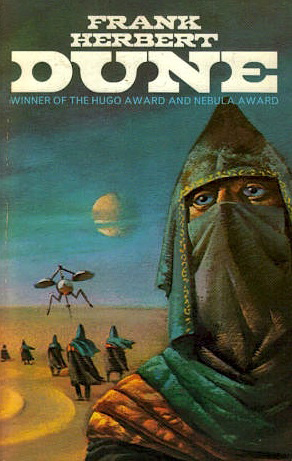
Author: Frank Herbert
Published: 1965
The glory of Dune is that it’s so clever, so full of ingenious ideas, so packed with exciting set pieces, so blessed with colourful characters, that even if you plough through the increasingly dire sequels, nothing tarnishes your memories of the original. A space opera on an audacious scale, with plots that have been hatching for centuries, political intrigue and some mindboggling SF concepts, Dune is a milestone in science fiction. When the desert planet of Arakis – so tangibly evoked you can almost feel the heat and dust on your cheeks – becomes the battleground for an intergalactic power struggle, the young heir to a dynasty in decline goes native. Oh yeah, and there are some space nuns who can predict the future who’ve set up a very special breeding program in the hope of creating a saviour.
2 THE HITCHHIKER’S GUIDE TO THE GALAXY
Author: Douglas Adams
Published: 1979
Adams is funny. Really funny. You just won’t believe how vastly, hugely, mind-bogglingly funny he is. You may think Red Dwarf is the height of comedy sci fi, but that’s just peanuts compared to Adams. On the other hand, don’t let the fact that Adams is probably the wittiest writer ever to have turned his attention to spaceships and all that gubbins get in the way of the fact that he’s also a damned fine SF author too. Behind the gags about digital watches, towels and morphing whales in Hitchhiker’s Guide to the Galaxy are some pretty weighty SF concepts of which Philip K Dick would be proud. The main difference is that Dick could write an entire novel based on a concept that Adams throws away in a passing comment. As we all know, Hitchhiker ’s started as a radio show, but it was the books based on the series (six in all, or five and a half if you don’t consider Salmon of Doubt – a posthumous collection of previously uncollected material by Douglas Adams – a proper book) that really extended Adams’s bonkers universe and fired the imagination of his fans.
1 THE LORD OF THE RINGS
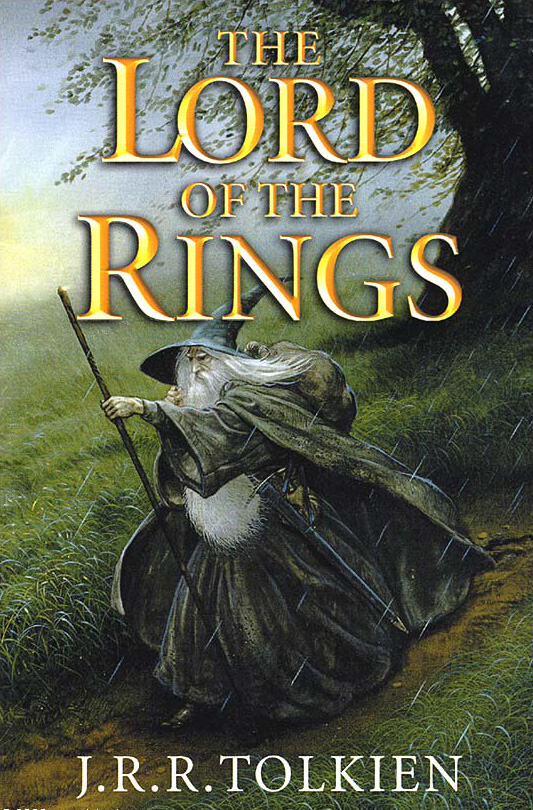
Author: JRR Tolkien
Published: 1954-5
Yes, it’s won again. Though Hitchhiker ’s put in a valiant effort, The Lord Of The Rings remains SFX readers’ favourite book. Or trilogy. Or six books if you’re a real LOTR pedant. The power of Tolkien’s folly to enchant readers just never seems to fade, and the Peter Jackson movie trilogy cleary hasn’t done its reputation any damage. The breed of sniffy, snobby literary types (many of whom you suspect haven’t even read his work) who dismiss Tolkien as nonsense, are, frankly, missing the point. Tolkien wasn’t interested so much in writing great literature – he wanted to create a modern myth. And in this regard he succeeded spectacularly – Middle-earth is so fully realised that it feels just as authentic and ancient as Greek mytholgy or stone circles. So, with this in mind, perhaps his finest work is actually The Silmarillion, published posthumously in 1977 (and edited by his son Christopher), as it details the legends and history of Middle-earth in prose so evocative that it’s hard to picture any other book reaching such heights – Tolkien even constructed new languages. It was a labour that, thankfully, the readers also loved. When it comes to epic fantasy Tolkien wrote the rule book, and any new fantasy author can either embrace Tolkien or kick against him. What they can’t do is ignore him.

Dave is a TV and film journalist who specializes in the science fiction and fantasy genres. He's written books about film posters and post-apocalypses, alongside writing for SFX Magazine for many years.


